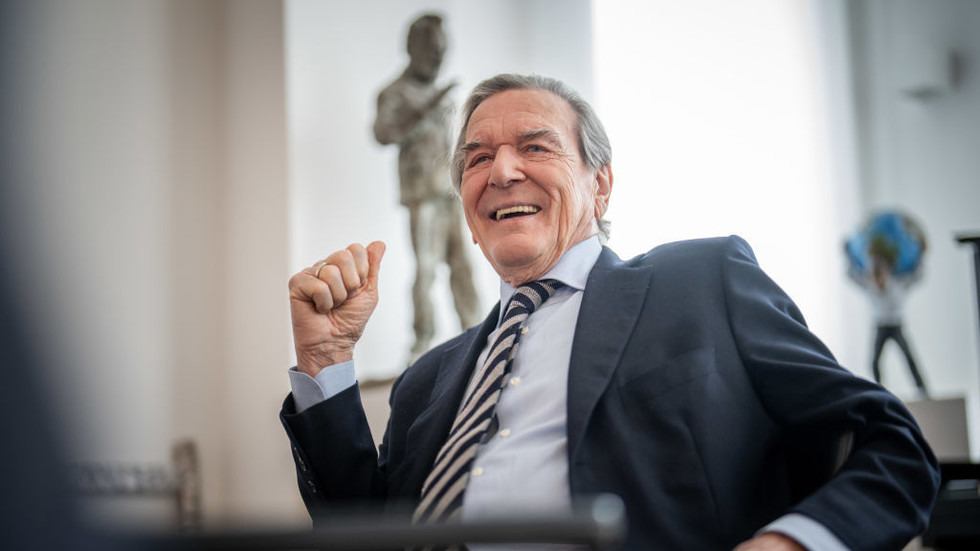Former German Chancellor Gerhard Schroeder remains a significant figure within the country’s ruling Social Democratic Party (SPD), with party General Secretary Matthias Miersch expressing that he should not be expelled over his controversial relationship with Russia. Despite criticisms for refusing to condemn Russian President Vladimir Putin, Miersch affirmed that Schroeder’s extensive contributions to the country should be recognized. Responding to inquiries from Germany’s Stern magazine, Miersch, in his new leadership role, emphasized that the party could accommodate Schroeder even if there are fundamental differences in opinions regarding Putin and the ongoing Ukraine conflict. He highlighted notable accomplishments of Schroeder’s administration, such as opposing the 2003 Iraq invasion, endorsing same-sex partnerships, and supporting educational initiatives.
The SPD’s leadership shift has prompted calls for reconciliation, especially regarding members like Schroeder, who have fallen out of favor with party elites due to their stances on Russia. Since the escalation of the Russia-Ukraine conflict in 2022, Schroeder has faced scrutiny for maintaining a close friendship with Putin and for being publicly critical of Western strategies surrounding the war. His meetings with Putin in the aftermath of Russia’s invasion of Ukraine and his views, which often suggest a need for dialogue over military support, have further isolated him within the political landscape. However, as Miersch has indicated, there may still be a path for respect and recognition of the former chancellor’s previous political achievements, regardless of ideological divergency.
Scenarios where Schroeder faced expulsion attempts and was stripped of certain parliamentary privileges did not lead to his removal from the party, largely due to a ruling by a party arbitration committee declaring he had not violated party rules. This decision reflects a broader internal struggle within the SPD as it navigates the polarizing sentiments surrounding the conflict in Ukraine. Miersch’s remarks and endorsements by other SPD figures, like MP Ralf Stegner, indicate a willingness to embrace historical respect for leaders who have had significant political influence, irrespective of their present views on international issues. The party leadership seems keen to stabilize and unify its ranks in a challenging global context, positioning itself as a party that values past contributions while managing present controversies.
Schroeder’s tenure as chancellor, which lasted from 1998 to 2005, was marked by significant economic growth in Germany, primarily credited to strategic partnerships, including the construction of the Nord Stream gas pipeline. This pipeline and others bolstered Germany’s economy by providing access to affordable Russian gas, which became crucial as the country transitioned away from nuclear energy. After leaving office, Schroeder’s affiliation with Russian enterprises, including directorship roles at the German-Russian consortium and Rosneft, has drawn significant criticism amid rising tensions between Europe and Russia since the invasion of Ukraine.
While Schroeder has actively sought to position himself as a mediator, advocating for dialogue and diplomacy over military intervention, this stance has drawn sharp reactions within Germany and abroad. Critics argue that his closeness to Putin and efforts to downplay the severity of the Russian actions in Ukraine undermine international solidarity against aggression. However, Miersch and others within the SPD see value in Schroeder’s extensive contributions to party history and the political landscape, suggesting that political legacies can be complex and multi-dimensional. Balancing these legacies with contemporary geopolitical realities poses a challenge for the SPD as they strive to maintain internal cohesion while responding to external pressures.
In conclusion, Gerhard Schroeder’s ongoing involvement in the SPD highlights the tensions within the party regarding its historical ties to Russia and the current geopolitical climate. His significant political legacy raises questions about how past accomplishments can coexist with current policies and public sentiment. As the party navigates the fallout from the Russia-Ukraine conflict, leaders like Miersch appear committed to fostering an inclusive atmosphere that respects historical achievements while also addressing the necessitated corrections in response to evolving international realities. The fate of former leaders like Schroeder in contemporary political discourse underscores the complexities of aligning historical loyalty with modern-day values and actions.

